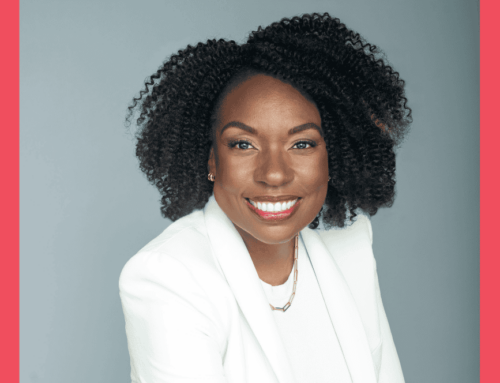Disinformation is false information intended to mislead. Misinformation is false information shared without intention of misleading. In this digital world, false information and the conspiracy theories, fake news, and downright lies attached to it seem to spread like wildfire.
A poll found that people in Canada consider the online disinformation epidemic and climate change as the most serious threats of the modern age. The Government of Canada’s Online Disinformation webpage says it well: “Even if you don’t believe it, false information causes doubt and confusion. It makes it harder to find factual content you can trust. It also may cause you to delay taking an important decision that could affect your wellbeing. False information can also continue to influence your beliefs even after you find out it’s not true … This effect is known as the continued influence effect and it is another way that disinformation can cause harm.”
There’s a lot of false information out there when it comes to gender equality and justice issues. We see it all the time, on all kinds of issues: the gender pay gap, why we have to unflinchingly confront racism and white supremacy, why ending transphobia and homophobia is a core part of our work, the scope of gender-based violence, misconceptions about trafficking, you name it.
Sometimes, misinformation leads to genuine questions. Sometimes, misinformation leads to accusations and attacks. It’s not about the evidence, it’s about making a point. And that point may be grounded in discrimination and disempowering marginalized people.
What happens when you’re faced with some kind of misinformation, no matter how or why it comes? How can you apply your curiosity as a useful tool?
Sabrina Cruz is our guest, co-founder of Answer in Progress, a media production company that encourages people to explore their curiosity and shares every stumble and success along the way. Their YouTube channel is over 1 million subscribers strong and covers a wide range of topics, from Teaching an AI to Solve the Trolley Problem to Getting Good Last Minute Gifts. They’ve collaborated with Google and HISTORY. They want to reignite a love of learning in themselves and their audience.
Transcript
00:00:04 Andrea
In the swirling misinformation and conspiracy theories, how can we stay curious and keep learning?
I’m Andrea Gunraj from the Canadian Women’s Foundation.
Welcome to Alright, Now What?, a podcast from the Canadian Women’s Foundation. We put an intersectional feminist lens on stories that make you wonder “Why is this still happening?” We explore systemic roots and strategies for change that will move us closer to the goal of gender justice.
The work of the Canadian Women’s Foundation and our partners takes place on traditional First Nations, Métis, and Inuit territories. We are grateful for the opportunity to meet and work on this land. However, we recognize that land acknowledgements are not enough. We need to pursue truth, reconciliation, decolonization, and allyship in an ongoing effort to make right with all our relations.
Disinformation is defined as false information deliberately intended to mislead. Misinformation is false information shared without intention of misleading. In the digital world in which we live, false information and conspiracy theories, fake news and downright lies attached to it, seems to spread like wildfire. And we’re worried about it.
A 2022 poll found that people in Canada consider the online misinformation epidemic and climate change as the most serious threats of the modern age. The Government of Canada’s online disinformation web page says it well, “Even if you don’t believe it, false information causes doubt and confusion. It makes it harder to find factual content you can trust. It also may cause you to delay taking an important decision that could affect your well-being.”
00:01:52 Andrea
False information can also continue to influence your beliefs even after you find out it’s not true. This effect is known as the continued influence effect, and it’s another way that disinformation can cause harm.
There’s a lot of false information out there when it comes to gender equality and justice issues. We see it all the time, on all kinds of issues – the gender pay gap, why we have to influentially confront racism and white supremacy, why ending transphobia and homophobia is a core part of our work, the scope of gender-based violence, misconceptions about trafficking, you name it.
Sometimes misinformation leads to genuine questions.
Sometimes misinformation leads to accusations and attacks.
It’s not about the evidence, it’s about making a point, and that point may be grounded in discrimination and disempowering marginalized people.
What happens when you’re faced with some kind of misinformation, no matter how or why it comes How can you apply your curiosity as a useful tool?
00:03:02 Andrea
This brings me to Sabrina Cruz, co-founder of Answer in Progress, a media production company that encourages people to explore their curiosity and shares every stumble and success along the way. Their YouTube channel is over 1,000,000 subscribers strong, including me, and covers a wide range of topics, from teaching AI to solve the trolley problem, to getting good at last minute gifts. They’ve collaborated with partners like Google and History. They want to reignite a love of learning in themselves and their audience. Answer In Progress’ How Conspiracies Work video addresses the issues of misinformation and curiosity, and it all starts with the conspiracy Sabrina found herself at the center of.
Here’s a clip of the video to start by way of background.
00:03:53 YouTube Video link
00:06:14 Sabrina
Hi, I’m Sabrina Cruz. I’m a video producer and the co-founder of Answer In Progress. We’re a YouTube channel or digital media production company that tries to take people on the journey from question to answer, showing every struggle and success along the way.
Personally, I’m a bit of a Jack of all trades kind of person. Like I’ll dive into whatever I find interesting, which is why, like at some point I’ve been wearing glasses my whole life. This is a podcast, but I’m wearing glasses right now, and for the longest time, they would always slip down my face. They’d like go down my nose and that really frustrated me and I wanted to know why that happened. So I ended up reading like 700 years of glasses history to figure out the evolution of glasses and why they ended up being designed the way that they are and then after I finished that made a whole video about it.
The comments were just like you could have gone to an optician. They fix that for you, which is great. It really is representative of who I am as a person.
00:07:13 Andrea
You’re such a talented content creator. I love Answer In Progress and I know you’ve been affected by misinformation yourself. And what was the connection to bias, sexism, all that bad stuff?
00:07:27 Sabrina
First off, thank you very much. And also racism is bad. I agree.
The interesting thing is that there was at one point a conspiracy theory about me for kind of similar reasons. I’ve been doing this whole YouTube thing since I was a kid, so I’ve spent a lot of time learning how to write, shoot, host, edit and animate all of my videos and like a lot of that was heavily influenced by the heavy hitters in the industry, BuzzFeed, Vox you know. I like to think that I got quite good at it and I’m still getting better and all of that jazz, but at some point, some weirdos on the Internet kind of saw this teen/early 20s girl making these videos that were of pretty decent quality, and then they just naturally assumed- Ohh she must be an industry plant. She’s just pretending to be an individual, but she’s just a host fronting for a real corporation where there are people doing all of the work, which was the most bonkers thing that has ever happened to me, but also kind of a compliment, just also very weird though.
When that happened, some people kind of read more into it than I did, maybe, like some people thought, oh, this is just because you are a young woman of colour like there’s no way you could have done this, but they wouldn’t have questioned this if somebody else was the making this stuff. I don’t know if that was the case. I talk the way that people who produce those kinds of things talk. I could I could have been a I I don’t blame people for thinking that and I like to take it as a compliment.
00:09:01 Andrea
Do you think the problem is getting worse?
00:09:03 Sabrina
It’s really tough for me to answer if the problem is getting worse because like recency bias is a thing and I’m only 24 years old, I haven’t experienced that much and I can’t tell you what life was like 100 years ago. Maybe it was basically the same. It was just less notification sounds. But in terms of, like online misinformation reinforcing these things, reinforcing a lot of bigotry, I think it’s just because it’s misinformation.
We are ultimately shaped by the things we consume, and we do a lot of our consuming online nowadays. I think the thing that might make the Internet and social media is that we can feel like we’re constantly on display. And so even people with the best intentions might feel pushed to have louder opinions, formed faster, and you’re less willing to change or update them because it’s already been posted for the world to see.
It’s not like a thought or a conversation you have with friends- there is receipts and screenshots people can pull up, and that might not encourage the best behaviors when it comes down to like staying curious and open minded and kind.
I felt that pressure. I think everybody has felt that pressure and it’s just, it is just really hard to ignore.
00:10:20 Andrea
What tips and tools would you recommend to help us build our muscles of awareness, curiosity, and critical thinking and encourage others to do the same?
00:10:29 Sabrina
The tip that I found helped me the most in terms of dealing with all of this mess, the struggles of being alive nowadays – it’s slowing down and really understanding who you are as a person and who you want to be. Starting from that foundational point is a good idea because it acts as the basis of your actions and you’re the one getting to decide that. There isn’t a there isn’t a cure all, there isn’t a single thing you can do to help people and be curious and be thoughtful. But by taking that kind of intentionality to your actions, you’re the one deciding it. You’re you put yourself back in the driver’s seat rather than like institutional or algorithmic mechanisms that are designed to encourage certain behaviors that you might not want to be doing. But you can’t help but do them. That thoughtfulness should be like one of the first steps to take.
In terms of actually staying curious and all of that, I think it’s always remembering that the people who write things and say things have a goal when they do those things, I have a goal. When I publish videos, I want views. I want people to like me. I crave attention, and like being aware of that, like everybody has some sort of intention and you should question them. They’re not always bad intentions, but you should be aware of them and think about them. And make sure that plays a role in how you internalize information.
And then, you could always fact check. The Internet is vast and it’s a bit of a mess sometimes, but you know, there are plenty of resources out there. Wikipedia is surprisingly useful, Google Scholar. You could just search up anything and then type PDF after and sometimes surprising results show up. Like having multiple sources and like really fact checking the things that you are choosing to really put a lot of yourself into, it’s a good idea.
00:12:22 Andrea
Any content you’d recommend? Those of us who want to get curious and keep learning but don’t know where to begin? What do you like?
00:12:28 Sabrina
Like if you want to be curious, there’s plenty of stuff that’s available. If you like videos, I would recommend Answer In Progress where we make stuff, but there’s also, so these two podcasts that I’m really enjoying, Let’s Learn Everything. They tackle science topics in a really like, wholesome and excited way. That makes me excited to learn things that I never thought I would have asked. Like they went to the history of the triangle like the instrument, the triangle and I was mind blown and another one is Underunderstood. And they tackle internet mysteries and it just gives me an appreciation for how much life is going on in the world and how many people are just chasing these very niche things. And it’s it’s, it’s exciting and it’s fun. And the world is big and magical and I think that we should put more time and effort into experiencing that.
00:13:22 Andrea
Alright, now what?
Disinformation and misinformation is a huge topic. Websites I go to again and again include snopes.com and mediasmarts. They’re great resources to help you fact check and get tools to grow your evidence seeking muscles.
Please listen subscribe rate and review this podcast if you appreciate this content, please consider becoming a monthly donor to the Canadian Women’s Foundation. People like you will make the goal of gender justice a reality. Visit canadianwomen.org to give today and thank you for your tireless support.






